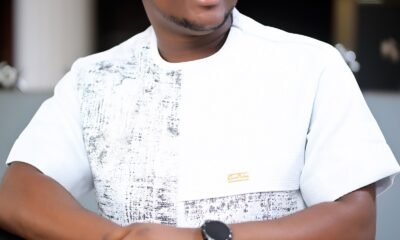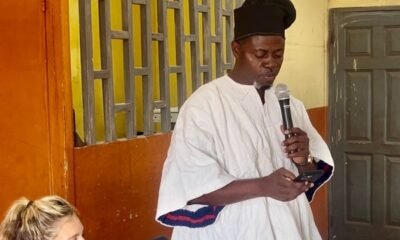News
Naomi Ohene Oti makes Ghana proud …wins $250,000 Global Nursing Award in Dubai
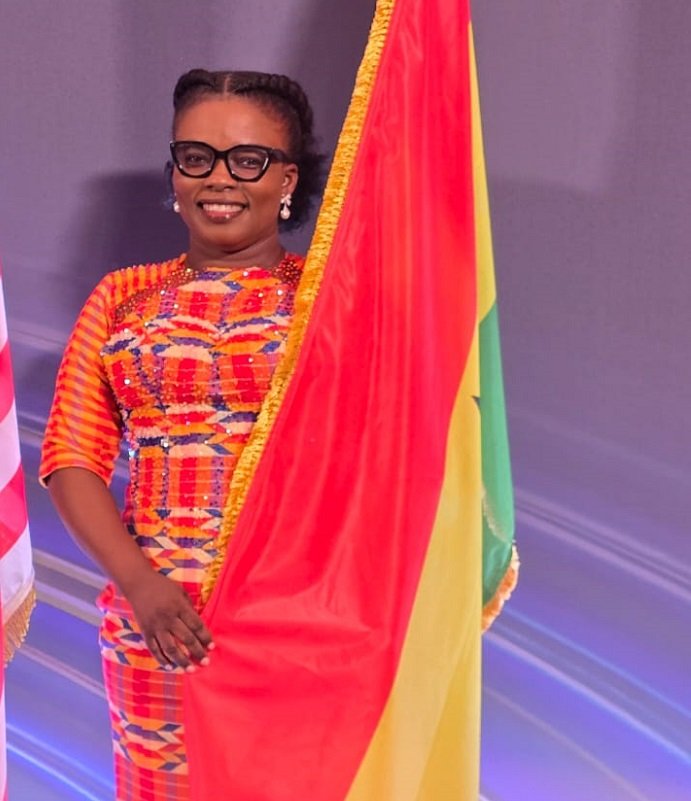
A ghanaian nurse, Naomi Oyoe Ohene Oti, on Monday, May 26 became the first Ghanaian to win the coveted 2025 Aster Guardians Global Nursing Award in Dubai, since its inception.
She received the award, which comes with a $250,000 cash prize, after she was selected from over 100,000 nominations from 199 countries.
The award places Ghana on the global healthcare map and marks a significant moment not only for her professional journey but also for Ghana’s growing influence in global health.
Naomi’s win places her alongside past recipients of the award, including Kenya’s Anna Qabale Duba (2022), the UK’s Margaret Helen Shepherd (2023), and the Philippines’ Maria Victoria Juan (2024).
This year’s finalists represented 10 countries, including the USA, Switzerland, India, Malaysia, Papua New Guinea, UAE, Kenya, and Ghana. Among such global talent, Naomi stood out, waving Ghana’s flag high on a prestigious international platform.
Naomi, an Oncology Nurse Specialist at the Korle-Bu Teaching Hospital, is currently serving as Head of Nursing at the National Radiotherapy, Oncology and Nuclear Medicine Centre at the facility.
Naomi has played a transformative role in advancing cancer care in Ghana. With a career spanning more than two decades, she pioneered the country’s first postgraduate oncology nursing curriculum in 2015 and has since mentored over 60 oncology nurse specialists and 10 breast care nurses.
She is also a respected voice in international cancer research and education, and serves as a global faculty member for the American Society of Clinical Oncology’s Multidisciplinary Cancer Management Courses.
Again, Naomi is a member of the African Organisation for Research and Training in Cancer (AORTIC), and a co-investigator on the Global Bridges Oncology Grant.
The Ministry of Health has described her achievement as a testament to the dedication and excellence within Ghana’s nursing profession.
According to the Ministry, “Naomi’s dedication to cancer care, service, and innovative contributions to Oncology Nursing have earned her global recognition.
It also said as a former recipient of the Ministry of Health’s Nursing and Midwifery Excellence Award, this latest honour reflects Naomi’s continued impact and leadership in advancing healthcare in Ghana and beyond
Her leadership in oncology care, according to the Ministry, highlights the capacity of Ghanaian nurses to make global impact and signals a growing recognition of the country’s healthcare
News
Support Street Academy to Break Cycle of Poverty in Society — Odododiodioo MP
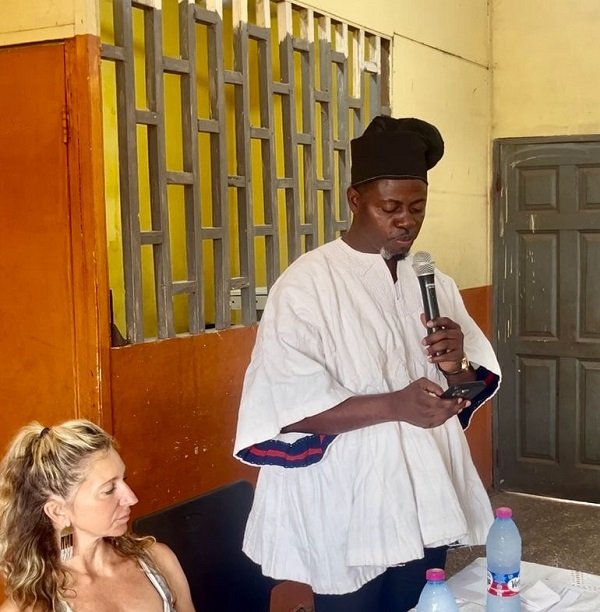
Mr. Alfred Nii Kotey Ashie, the Member of Parliament for the Odododiodioo Constituency in the Greater Accra Region, has assured the Accra Street Academy of his support in achieving its mission of uplifting vulnerable children within the community to break the cycle of poverty. “Without the needed support, your efforts may go round in circles due to the enormity of the task. This should not be left on the shoulders of the Academy alone. You need support from both government and the private sector. With that, the Academy would be in a good position to shape the future of these children on the streets,” he said.
The Accra Street Academy, originally formed in 1985 as a boxing arena, now serves as a school for deprived children, with most of its population numbering hundreds of pupils being neglected children from the streets of Jamestown and its environs. Mr. Alfred Nii Kotey Ashie made these remarks at the annual stakeholders’ meeting and fundraising event held over the weekend under the theme “Empowering Street Children: Health and Wellness.” The event is one of the Academy’s annual programmes, organized to raise funds and other forms of support to aid the school in catering to the needs of the children and holding its Christmas get-together.
According to the MP, it is worth noting that these children are taught and provided with two meals and a snack daily through the support of benevolent members of society. In view of this, he promised to facilitate the acquisition of documents needed for the construction of an Astroturf within the school’s premises. He noted that “every child has the right to play, and therefore I pledged to do my best to secure the needed documents” for the project to commence.
The legislator disclosed that over the years, the academic programmes of the Accra Street Academy have transformed children surviving on the streets into successful adults. He therefore urged other members of society to partner with the school to “help pupils rise higher for a better Ghana.” In the 2025/26 academic year, 22 pupils were absorbed by the Accra Metro Education Directorate as they transitioned into various Junior High Schools, while still returning to the Accra Street Academy for academic support.
Ms. Yvonne Abba-Opoku, a chartered governance advisor and senior executive in the nonprofit and charity sector, stated that the best gift to give a child was education.
By Spectator Reporter
Join our WhatsApp Channel now!
https://whatsapp.com/channel/0029VbBElzjInlqHhl1aTU27
News
Attend antenatal clinics for safe delivery … expectant mothers urged
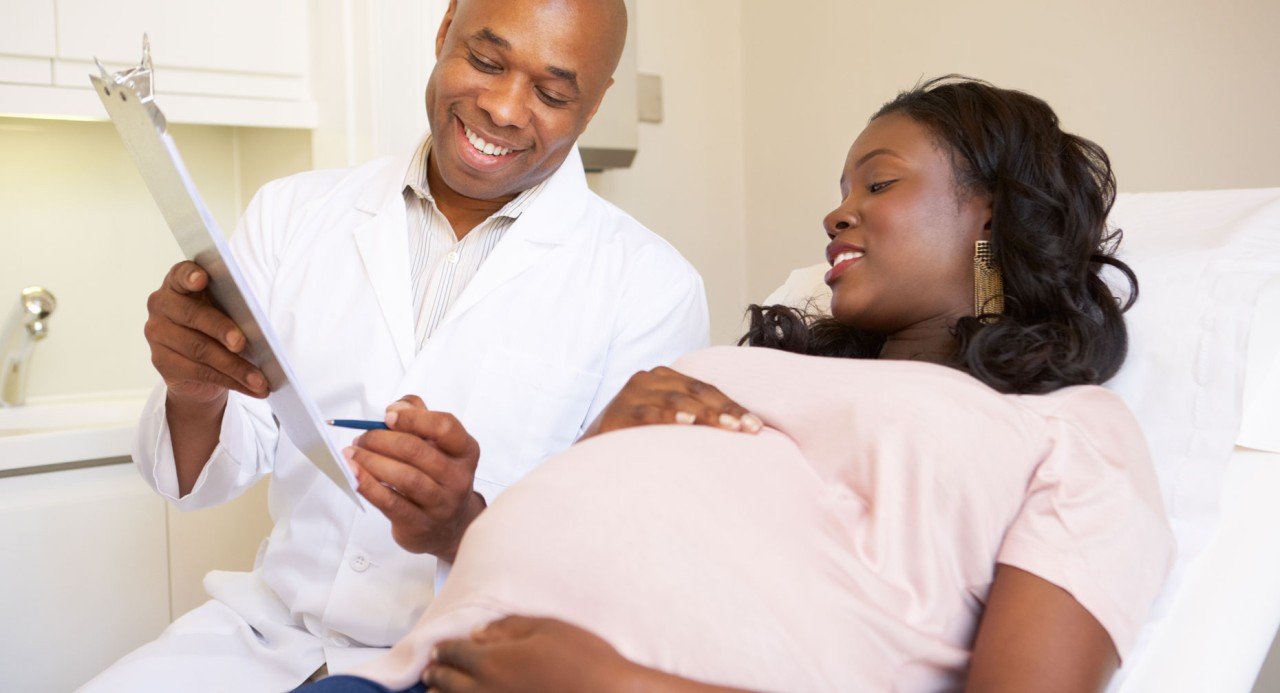
Mrs Regina Kudom, Senior Midwifery Officer at the New Atuabo Health Centre in the Tarkwa Nsuaem Municipality, has urged expectant mothers to attend antenatal clinic regularly for safe delivery.
She revealed that “in Tarkwa and its environs many pregnant women prefer staying at prayer camps, we are not against that, you can be there, but when your time is up for your antenatal session make sure you attend.”
Mrs Kudom gave the advice when the Gold Fields Ghana Foundation (GFGF) observed the World Prematurity Day with pregnant women at New Atuabo, Huniso and Awudua health centres.
World Prematurity Day falls on November 17, every year, and it is celebrated to raise awareness about the challenges faced by pre-term babies and their families.
She said research suggested that sex during pregnancy could soften the cervix and potentially aid in labour preparation.
“That is the reason why we encourage pregnant women to have sex with their partners, if they do not have any health implications,” she added.
Mrs Kudom appealed to the GFGF to upgrade the New Atuabo health centre as the current structure was too small because they received many patients daily.
Madam Ayishetu Mohammed, Project Coordinator for GFGF, explained that they received donations from Project C. U. R. E and the items were given to health facilities in their operational area.
She stated that they noticed there were baby dresses, sanitary pads, and baby apparel, so they decided to distribute them among expectant mothers in three of their host communities.
Madam Mohammed said because the foundation was interested in preventive care, they brought a midwife from the Tarkwa Mine hospital to educate the pregnant women.
She extolled the midwives in New Atuabo health centre for the education they gave to the pregnant women and implored them to heed to the advice given during antenatal visits to reduce maternal deaths in the Tarkwa Nsuaem and Prestea Huni-Valley Municipalities.
Mr Paa Kwasi Egan, Deputy Chief Physician Assistance, emphasised that a pregnant woman being anemic meant she was not eating a balance diet, and added that, “Some of these women do not have money to buy food or visit antenatal clinics.”
He said when men follow their wives for antenatal visits, they would be educated extensively on why they should provide funds for their pregnant wives.
Mr Egan, therefore, encouraged all men to be involved in their pregnant wives’ antenatal care appointments so they could learn more about pregnancy, childbirth, and parenting. – GNA



